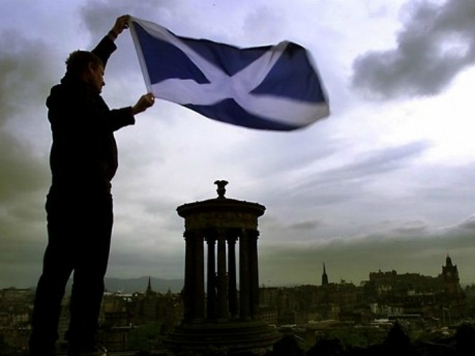
The Scottish Government is to be granted more powers following a report published today by Lord Smith of Kelvin. Under the plans a third of taxes will be controlled by Scotland and just a fifth of welfare spending, leading to concerns the new system lacks transparency.
In today’s report Lord Smith recommended that Westminster legislate to allow the Scottish government to set income tax rates, retain all income tax revenue and give the vote to 16 and 17 year olds if they choose. He also proposes to give Holyrood the powers to create new benefits in devolved areas and make discretionary payments in any area of welfare.
During the referendum debate the YesScotland campaign had made the case that an independent country would have the power to implement a Scandinavian-style tax and spend regime. As the polls narrowed politicians like Gordon Brown promised Scotland would be granted the powers to create a more socialist country even if they voted to stay in but this not not been fully granted in today’s proposals.
Professor Philip Booth, Editorial and Programme Director at the IEA said: “Under the Smith proposals, different levels of government will be able to continue to blame each other for economic and social problems within Scotland.
“Many of the proposals involve powers to allow the Scottish government to regulate and intervene in the Scottish economy to an even greater extent than the UK government currently does. This is an asymmetric set of measures – likely to lead to more government spending, regulation and higher taxes.”
The Scottish National Party welcomed the extra powers but they too criticised the proposals claiming the half-way house represented a U-turn on promises made during the campaign.
SNP Deputy First Minister John Swinney MSP said: “We welcome the new powers – as we support all progress for Scotland – and pledge to use them when they are in place in the best interests of the Scottish people. We also welcome the acknowledgement of the ‘sovereign right’ of the people of Scotland, and our ability to proceed to independence if we so choose.
“But the proposals clearly do not reflect the full wishes of the people of Scotland, and also fall far short of the rhetoric from the No campaign during the referendum. Then, Gordon Brown promised ‘nothing less than a modern form of Scottish Home Rule’ and ‘as close to a federal state’ as the UK can be.”
The SNP also pointed out that the most recent polling shows 71 percent of Scots believe the Scottish government should have control of all taxation. Two-thirds also support Holyrood controlling every area of policy other than defence and foreign affairs.
All three of the major Westminster parties welcomed the proposals but a number of right-wing Conservative MPs are unhappy. The Tory MP for Christchurch, Chris Chope, has already claimed the ‘No’ campaign made promises on behalf of the rest of the UK that they had no right to pledge. This included maintenance of the hated funding system – the Barnett Formula – which ensures English and Welsh taxpayers have to subsidise the Scottish.
As a result of the widespread support for the proposals at Westminster they are expected to be passed into law with a comfortable majority in both the Commons and the Lords. However, what to do about England is likely to be more contentious because Scottish MPs will still have the power to vote on issues that affect the rest of the UK but not their own country.
The Conservatives answer to this is to ban Scottish MPs from voting on English issues, but this would make it almost impossible for a future Labour government to pass legislation in Westminster.

COMMENTS
Please let us know if you're having issues with commenting.